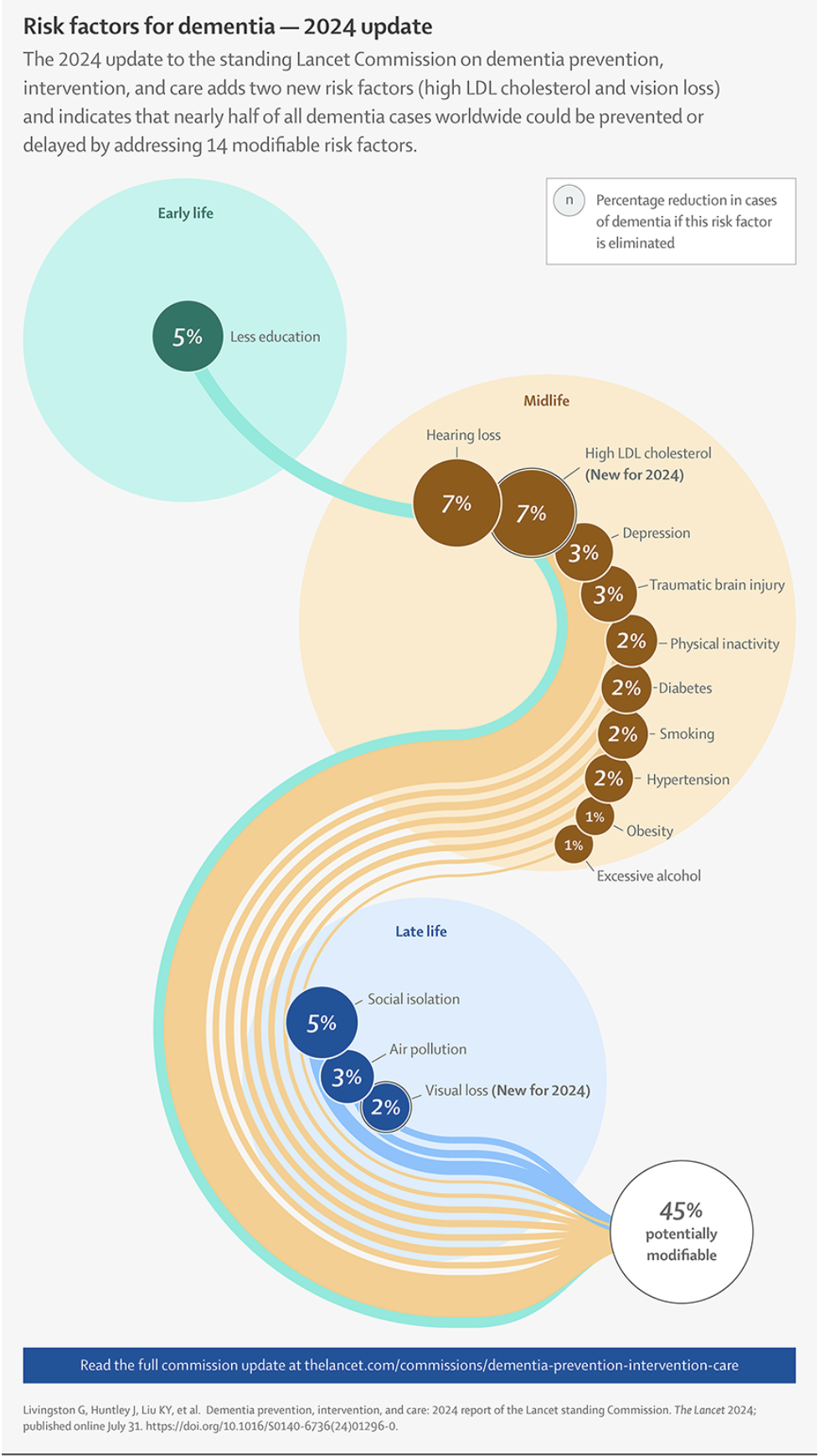The Lancet Commission on dementia has just published its 2024 update on dementia prevention, intervention, and care. This report highlights multiple risk factors for dementia that are considered to be "modifiable" - issues that can be targeted to reduce risk. For the first time, the report included vision impairment on the list, which also includes less education, hearing loss, hypertension, smoking, obesity, depression, physical inactivity, diabetes, excessive alcohol consumption, traumatic brain injury, air pollution, and social isolation. Dr. Cecilia Lee was quoted in the New York Times article about the new Lancet report, and was also recognized in this UW Medicine news release: Vision loss, high cholesterol linked to higher dementia risk which highlights the Adult Changes in Thought study.
The Lancet report cites two studies by Cecilia Lee and co-authors as evidence for this new modifiable risk factor. This study on dementia outcomes after cataract extraction in the Adult Changes in Thought study cohort was a key piece of evidence connecting vision loss and increased risk of dementia development. Another study by Dr. Lee and her ACT colleagues that was cited in the Lancet report found that diabetic retinopathy, an ocular complication of diabetes, appears to be an important biomarker of dementia risk in people with type 2 diabetes.

Going forward, researchers will continue to investigate these connections between the eye and brain to better understand the mechanisms behind them. In the meantime, doctors and patients may consider interventions to counteract the hearing and vision loss that can often occur in older age. If nothing else, this can help prevent older people from becoming socially isolated - another modifiable risk factor for dementia.
Dementia prevention, intervention, and care: 2024 report of the Lancet standing Commission
How Hearing and Vision Loss Increase the Risk of Dementia in the New York Times
